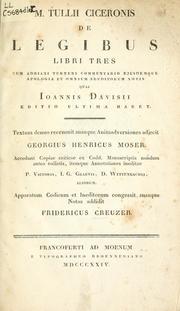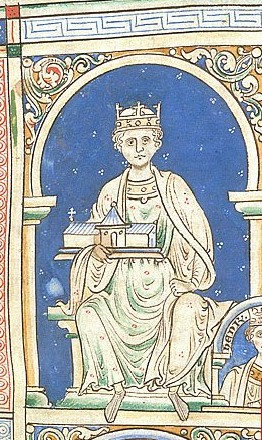|
Legibus (other)
{{disambig ...
Legibus, dative and ablative plural for Latin ''lex'' (law), may refer to: ;Literature *De Legibus a dialogue written by Marcus Tullius Cicero *''De Legibus et Consuetudinibus Angliae'', work by Henry de Bracton *''De legibus naturae'', work by Richard Cumberland (philosopher) *Tractatus of Glanvill (Tractatus de legibus et consuetudinibus regni Angliae) ;Laws *Decemviri (also Decemviri Legibus Scribundis Consulari Imperio) ;Phrases *Legibus solutus (sometimes princeps legibus solutus est); see above the law (other) See also *Lex (other) *Leges (other) Leges (plural of Latin lex: ''law'') may refer to: Literature * ''Laws'' (dialogue) Plato's last and longest dialogue Ancient Roman law * Leges regiae, early Roman laws introduced by the Kings of Rome * Lex Julia (Leges Juliae), ancient Roman la ... [...More Info...] [...Related Items...] OR: [Wikipedia] [Google] [Baidu] |
Lex (other)
Lex or LEX may refer to: Arts and entertainment * ''Lex'', a daily featured column in the ''Financial Times'' Games * Lex, the mascot of the word-forming puzzle video game ''Bookworm'' * Lex, the protagonist of the word-forming puzzle video game ''Bookworm Adventures'' Music * ''L.E.X.'', the third studio album by Liverpool Express * "Lex", a song from Ratatat's 2006 album ''Classics'' * ''Lex'' (album), a mini-album and partial soundtrack by Portland, Oregon duo Visible Cloaks * Lex Records, an independent record label Computing * Amazon Lex, a service for building conversational interfaces into any application using voice and text * LEX (cipher), a stream cipher based on the round transformation of AES * Lex (software), a computer program that generates lexical analyzers * lex (URN), a URN namespace that allows accurate identification of laws and other legal norms. Names * Lex (given name) * Lex (surname) Places * Lex, West Virginia, an unincorporated community in McDo ... [...More Info...] [...Related Items...] OR: [Wikipedia] [Google] [Baidu] |
De Legibus
The ''De Legibus'' (''On the Laws'') is a dialogue written by Marcus Tullius Cicero during the last years of the Roman Republic. It bears the same name as Plato's famous dialogue, '' The Laws''. Unlike his previous work ''De re publica,'' in which Cicero felt compelled to set the action in the times of Scipio Africanus Minor, Cicero wrote this work as a fictionalized dialogue between himself, his brother Quintus and their mutual friend Titus Pomponius Atticus. The dialogue begins with the trio taking a leisurely stroll through Cicero's familial estate at Arpinum and they begin to discuss how the laws should be. Cicero uses this as a platform for expounding on his theories of natural law of harmony among the classes. The three surviving books (out of an indeterminate number, although Jonathan Powell and Niall Rudd in their translation for Oxford seem to argue that it may have been six, to bring it in line with the number in ''de re publica''), in order, expound on Cicero's be ... [...More Info...] [...Related Items...] OR: [Wikipedia] [Google] [Baidu] |
Henry De Bracton
Henry of Bracton, also Henry de Bracton, also Henricus Bracton, or Henry Bratton also Henry Bretton (c. 1210 – c. 1268) was an English cleric and jurist. He is famous now for his writings on law, particularly ''De legibus et consuetudinibus Angliæ'' ("On the Laws and Customs of England") and his ideas on ''mens rea'' (criminal intent). According to Bracton, it was only through the examination of a combination of action and intention that the commission of a criminal act could be established. He also wrote on kingship, arguing that a ruler should be called king only if he obtained and exercised power in a lawful manner. In his writings, Bracton manages to set out coherently the law of the royal courts through his use of categories drawn from Roman law, thus incorporating into English law several developments of medieval Roman law. Life Plucknett describes Bracton in this way: "Two generations after Ranulf de Glanvill we come to the flower and crown of English jurisprudenc ... [...More Info...] [...Related Items...] OR: [Wikipedia] [Google] [Baidu] |
Richard Cumberland (philosopher)
Richard Cumberland (15 July 1631 (or 1632) – 9 October 1718) was an English philosopher, and Bishop of Peterborough from 1691. In 1672, he published his major work, ''De legibus naturae'' (''On natural laws''), propounding utilitarianism and opposing the egoistic ethics of Thomas Hobbes. Cumberland was a member of the Latitudinarian movement, along with his friend Hezekiah Burton of Magdalene College, Cambridge and closely allied with the Cambridge Platonists, a group of ecclesiastical philosophers centred on Cambridge University in the mid 17th century. Early life He was born in the parish of St Ann, near Aldersgate, where his father was a tailor. He was educated in St Paul's School, where Samuel Pepys was a friend, and from 1649 at Magdalene College, Cambridge, where he obtained a fellowship. He took the degree of BA in 1653; and, having proceeded to the MA in 1656, was incorporated the following year into the same degree in the University of Oxford. For some time ... [...More Info...] [...Related Items...] OR: [Wikipedia] [Google] [Baidu] |
Tractatus Of Glanvill
The (''Treatise on the Laws and Customs of the Kingdom of England''), often called ''Glanvill treatise'', is the earliest treatise on English law. Attributed to Ranulf de Glanvill (died 1190) and dated 1187–1189, it was revolutionary in its systematic codification that defined legal process and introduced writs, innovations that have survived to the present day. It is considered a book of authority in English common law. Written for Henry II () as the culmination of his long struggle to return the kingdom to peace and prosperity following years of anarchy, the ''Tractatus'' is fairly described as the means to implement Henry's objectives. It would be supplanted as a primary source of English law by the ''De legibus et consuetudinibus Angliae'' (''On the Laws and Customs of England'') of Henry de Bracton (), which itself owes much of its heritage to the ''Tractatus''. There has been debate over the actual author of all or parts of the ''Tractatus''. The legal opinions of Gla ... [...More Info...] [...Related Items...] OR: [Wikipedia] [Google] [Baidu] |
Decemviri
The decemviri or decemvirs (Latin for "ten men") were some of the several 10-man commissions established by the Roman Republic. The most important were those of the two Decemvirates, formally the " decemvirate with consular power for writing laws" ( la, decemviri consulari imperio legibus scribundis) who reformed and codified Roman law during the Conflict of the Orders between ancient Rome's patrician aristocracy and plebeian commoners. Other decemviri include the "decemviri adjudging litigation" ('), the "decemviri making sacrifices" ('), and the "Decemviri Distributing Public Lands" ('). ''Decemviri consulari imperio legibus scribundis'' Background Gaius Terentilius Harsa, a plebeian tribune, wished to protect the plebeian population by curtailing the power of the Roman consuls. To do this, he proposed a law in 462 BC which provided for a five-man commission to define their power. The patricians were opposed to this curtailment and managed to postpone the debate on this ... [...More Info...] [...Related Items...] OR: [Wikipedia] [Google] [Baidu] |
Legibus Solutus
Ulpian (; la, Gnaeus Domitius Annius Ulpianus; c. 170223? 228?) was a Roman jurist born in Tyre. He was considered one of the great legal authorities of his time and was one of the five jurists upon whom decisions were to be based according to the Law of Citations of Valentinian III. Biography The exact time and place of his birth are unknown, but the period of his literary activity was between AD 211 and 222. He made his first appearance in public life as assessor in the auditorium of Papinian and member of the council of Septimius Severus; under Caracalla he was master of the requests (''magister libellorum''). Elagabalus (also known as Heliogabalus) banished him from Rome, but on the accession of Severus Alexander (222) he was reinstated, and finally became the emperor's chief adviser and ''Praefectus Praetorio''. During the Severan dynasty, the position of Praetorian prefect in Italy came increasingly to resemble a general administrative post, and there was a tendency to ap ... [...More Info...] [...Related Items...] OR: [Wikipedia] [Google] [Baidu] |
Above The Law (other)
Above the Law may refer to: Movies and television * ''Above the Law'' (1988 film), an American action film starring Steven Seagal * ''Above the Law'' (2017 film), a Belgian-French thriller film starring Lubna Azabal * ''Above the Law'' (TV series), an Australian television series * ''Righting Wrongs'', a 1986 Hong Kong film titled ''Above the Law'' for international release Legal concepts * Immunity * Impeachment * , doctrine of Roman Law as coined by Ulpian: "The sovereign is not bound by the laws." () Other uses * Above the Law (group), an American hip hop group * Above the Law (website), a law blog * "Above the Law", a song by Bad Meets Evil from '' Hell: The Sequel'' * "Above the Law", the third episode of the adventure video game '' The Walking Dead: A New Frontier'' See also * Beyond the Law (other) ''Beyond the Law'' may refer to: * ''Beyond the Law'' (1918 film), an American western film directed by Theodore Marston * ''Beyond the Law'' (1930 film), an Ameri ... [...More Info...] [...Related Items...] OR: [Wikipedia] [Google] [Baidu] |


